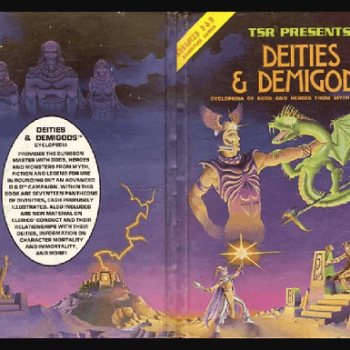Call for Proposals
The Palgrave Handbook of Popular Culture as Philosophy
Editor-in Chief: David Kyle Johnson
The Palgrave Handbook of Popular Culture and Philosophy is an online first/living reference handbook of articles that treat works of popular culture as philosophy. The main goal is to identify and critique the philosophical ideas presented and arguments made by works of popular culture, such as films, television shows, video games, comedians, and graphic novels. Some already published examples include articles that evaluate the humanism of Star Trek and treat the movie Inception as an argument that “reality doesn’t matter.” Upon publication, each article is hosted by and available on the SpringerLink platform. When the collection is considered compete, it will be published as a print handbook and a static ebook.
The handbook has numerous forthcoming articles but is lacking enough articles on certain topics, namely video games, comedians, and graphic novels. The editor is therefore seeking proposals. Of need in particular are…
…articles on comedians like Wanda Sykes, Maya Rudolph, Luenell Cambell, Sarah Silverman, Michelle Wolfe, Tig Nataro, Kumail Naniami, Eddie Izzard, Stephen Fry, Trevor Noah, Myg Kaplan, Aisha Tyler, Hasan Minhaj, and/or Tiffany Haddish.
…articles on video games like Mass Effect, Bioshock, Fallout, The War of Mine, Portal, Deus Es, Spec Ops: The Line, Steins;Gate, The Stanley Parable, Shin Megami Tensei, Nocturne, Planescape: Torment, Silent Hill 3, Xenogrears, Live A Live, Valkyrie Profile, Satta Frontier, and/or Dark Souls.
…articles on graphic novels like Deadpool Kills the Marvel Universe, Superman: Red Son, Injustice: God’s Among Men, Bitch Planet, Marvel’s Civil War, Black Panther, Y: The Last Man on Earth, and/or V for Vendetta.
After a brief introduction, each article will begin by summarizing the work in question and then take a deep dive into the work itself, concentrating on the relevant features and context of the work, to interpret it and find the philosophical argument/idea it is presenting. The article will end by evaluating that argument/idea in light of the work and arguments of the relevant philosophers. The article should be between 6,000-10,000 words long (not counting references and endnotes).
To submit proposals, email the editor-in-chief, David Kyle Johnson, at [email protected] Include a brief (100 word) description of your approach and a copy of your CV. In your proposal, try to be clear about how the media in question is doing philosophy (e.g., what argument it is presenting, what question is it raising), and include a title that follows this format. X as Philosophy/Philosopher: Topic (e.g., “Inception as Philosophy: Choose your Dreams or Seek Reality”)













